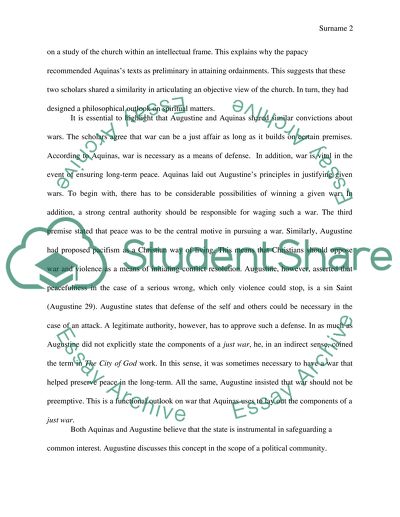Cite this document
(“Compare and Contrast Augustine(Political Writing) and Aquinas (The Essay”, n.d.)
Retrieved from https://studentshare.org/history/1495430-compare-and-contrast-augustinepolitical-writing
Retrieved from https://studentshare.org/history/1495430-compare-and-contrast-augustinepolitical-writing
(Compare and Contrast Augustine(Political Writing) and Aquinas (The Essay)
https://studentshare.org/history/1495430-compare-and-contrast-augustinepolitical-writing.
https://studentshare.org/history/1495430-compare-and-contrast-augustinepolitical-writing.
“Compare and Contrast Augustine(Political Writing) and Aquinas (The Essay”, n.d. https://studentshare.org/history/1495430-compare-and-contrast-augustinepolitical-writing.


